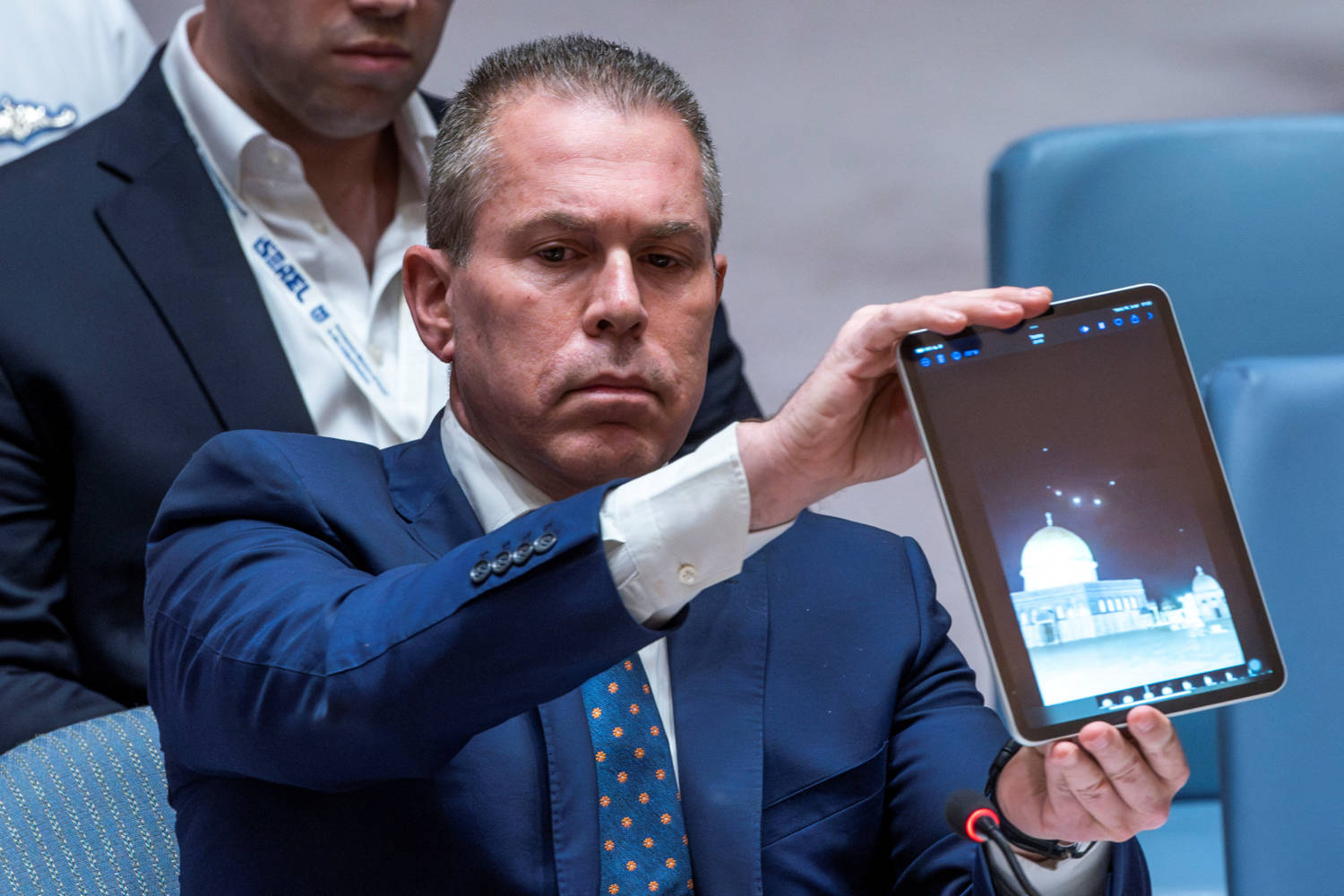By Euripides L. Evriviades, Ambassador (a.h.)
- For the first time ever, Israel was targeted by Iranian forces directly from its soil (13.04.2024) with over 300 drones and missiles. This is an unprecedented attack and a significant escalation from Iran’s usual strategy of employing proxy groups, like Hezbollah and Hamas to attack Israel. It potentially sets the stage for direct confrontations in the future. Iran said the attack “achieved all its objectives.” It added it would use greater force if Israel retaliated. Israel said that the confrontation with Iran is “not over yet”.
- Israel and its allies have successfully intercepted 99% of Iranian missiles, showcasing the prowess of Israel’s advanced defence systems, including the Iron Dome and sophisticated AI warfare technologies. This defence not only provides Israel with a significant strategic advantage, but also serves as a strong deterrent against further attacks, underscoring the complex interplay of military readiness and strategic deterrence in regional stability
- The concept of “controlled escalation” is inherently precarious and often spirals out of control. There is a real risk of miscalculation, with the conflict potentially escalating beyond initial intentions. Both Israel and Iran should be wary of falling into Thucydides’ trap, where a rising power causes fear in an established power leading to conflict—a scenario not inevitable but possible.
- It is widely believed, though not officially confirmed, that Israel was responsible for the bombing of the Iranian Consulate in Damascus on April 1st, a facility legally recognized under international law as Iranian territory. This action was bold risk, underscoring the high stakes of international breaches, such as those outlined in the Vienna Convention on Diplomatic Relations. The Iranian retaliation which followed, appears as a calculated response intended to send a resolute military message to Israel and its allies. This incident highlights the delicate balance of power and the potential for significant geopolitical repercussions.
- Leaders in both Israel and Iran are under immense domestic pressure, with national pride at very high levels. This backdrop diminishes their concern for international criticism, pushing them further into a dangerous game of brinkmanship that plays heavily on the psychological warfare front.
- Iran made its intentions known to a number of countries 72-hours in advance. Its initial deployment of slow-moving drones, while showcasing its military capabilities, also strategically allowed Israel time to activate its defences. This approach may suggest Iran’s aim to demonstrate its strength and send strategic messages without crossing the threshold into full-scale conflict.
- Even though the US and allies of Israel show solidarity with Israel, the US has clearly opposed a direct Israeli military offensive against Iran. This stance sends a dual message: acknowledgment of Israel’s right to defend itself and a strong preference for closing this chapter through diplomatic means rather than military responses.
- If Israel chooses not to retaliate immediately, it’s projecting a message of strategic patience to Iran and its proxies. Israel must carefully consider the implications of such restraint on its long-term security and regional posture, weighing the benefits of stability against the risks of perceived weakness.
- It should also be recalled that the shadow war between Israel and Iran has been going on for decades and has influenced each other’s strategic calculations. The current events are merely the latest public manifestation of this covert conflict, which has shaped the geopolitical landscape of the Middle East ever since the Iranian revolution. This historical context is essential for understanding the complexities that have shaped the geopolitical landscape of the Middle East.
- Clear messages from Gulf countries, from the EU, the UN, the G7 and from the region (including from Cyprus) collectively call for de-escalation. This international consensus not only underscores the urgency for diplomacy, but also amplifies the regional desire for a stable Middle East, reflecting broad geopolitical interests.
- While diplomacy is universally advocated, it requires both space to operate, and swift results to maintain stakeholder confidence. The complexity and high stakes of navigating these diplomatic efforts amidst ongoing tensions present formidable challenges.
- An urgent Gaza ceasefire is crucial not only to de-escalate the current conflict but also to serve as a litmus test for broader diplomatic engagements. Demonstrating a commitment to protecting civilians across all borders underscores the humanitarian imperative at the heart of any conflict resolution and diplomacy.
- There must be a mutual and irrevocable recognition that a peace process must restart with the end result of a sustainable solution to the core of the Middle East conflict which is the Palestinian issue. Hardliners want to bury a two-state solution. There is talk of a three-state solution. One in Gaza linked to Egypt, one in West Bank linked to Jordan and Israel.
- The only viable end to this conflict rests on the hope that Palestinians and Israelis can live with dignity, pride and security in their respective states. Achieving this monumental goal requires not only Herculean diplomatic efforts, but also comprehensive strategies addressing justice and economic opportunities comprehensively.






